Scene 1
Narrator: Long ago in a land not so far away, there was a lavish inaugural ball for President Trumpaverus. All of the lobbyists, political hacks, ambassadors and business moguls were in a banquet hall, smoking cigars and drinking Russian Vodka. Off to the side, a Presidential advisor is speaking with the Supreme Leader.
Stephen Shoeshine: “What a ball you have here President Trumpaverus”
Trumpaverus: Thank you Stephen Shoeshine. Is there any place better than a Trumpaverus party? You know, people are saying this is the biggest inaugural ball of all time. It’s a fantastic, fantastic ball. I just love throwing huge, classy balls. This is way more fun than a “Weekend at Bernie’s”. I was the best candidate. I won every debate. I won everything I did and I won easily, and now I won the United States. America is mine. My administration will do amazing things. I will do more in the first 100 days than any president. I will be the best President ever. I will make China buy all of our American products, I will cut all taxes, no more taxes for anyone, I will create more jobs for real Americans and I will build up our military with a space force and the space stewardesses will have beautiful little uniforms. While the media is screaming about my tweets, I’ll be creating The United States of Trump! The Democrats are going to feel the BERN.
But we’ve been here in this hotel for so long. And I haven’t seen the most beautiful woman on the planet, who I happened to have married. Where is that amazing Slovenian Goddess of mine. Vashtiania? Vashtiania? Where are you Vashtiania? Hey Stephen Shoeshine go get Vashtiania and tell her to come out here. And make sure she is wearing one of her tiaras. In fact, that’s enough, just the tiara.
Stephen Shoeshine: Of course, your Presidential royalness. Off I go to the harem. (he climbs stairs) Oh Vashtiania! Vashtiania! Grab your crown and come on down.
Vashtiania: Stephen Shoeshine you hot little Xenophobe! As much as you beg, I will not come back to that party!
Stephen Shoeshine: Vashtiania, you are going to make Trumpaverus very angry. Lord knows what he will tweet.
Vashtiania: Don’t worry you little white nose dog! I’ll take care of Trumpaverus later.
Narrator: Stephen Shoeshine returns without Vashtiania.
Trumpaverus: Where is she, where’s my best ever first lady?
Stephen Shoeshine: Vashtiania says she wants you to come to her. She wants to make you number one in the Lincoln bedroom.
Trumpaverus: Tonight, I think I’ll take her to the Rose Garden where I can grab her by the bushes. She lets me do that you know. I just start kissing her and wowee! But if Vashtiania is not going to listen to me she should be punished. I know. Let’s get her to undertake a First Lady’s campaign. It gives me something to tweet about. It has to be the best First Lady’s campaign ever. Jared Kushyjob, my Jewish son-in-law, what shall we call it?
Jared Kushyjob: How about we call it Jews Are Best!
Trumpaverus: No Jared that’s just a little too Jewy. Have you any ideas Shoeshine?
Stephen Shoeshine: Given your immigration policies, how about we call the campaign, “Only the Best Get In”
Trumpaverus: that’s a little scary – how will I find staffing for my resorts?
Stephen Shoeshine: Then I think her campaign should have every American aspire to be just like you Mr. President. Let’s call it BE BEST!
Trumpaverus: yes, BE BEST. I love it. I have to show the world how much the women love me. And I have tremendous respect for women. I should have a female apprentice! We need her to be like a spokes model. She can tell everyone about our Administration’s great successes. We just keep winning! So much winning. And I need a beautiful woman to distract me from the losers. Let’s have a contest to see which woman should be our spokes model. We can have a swimsuit competition and a night gown competition and a multiple choice question and answer session. Who have we got for the contest?
Kushner: Well, sir, we have Jewvanka, your first and best most beautiful daughter, and then there’s Hope Hickies, Kellyanne Cutaway and Sarah Slanders.
Trumpaverus: that’s a good list there Jerald!
Kushyjob: that’s Jarred, Jarred. Remember me, from the wedding with the chuppah.
Trumpaverus: Sure, thing Rabbi. And now I’m off to the White House. What a location. I’m in the real estate business and I know a great location! We could build a big beautiful building with a big beautiful wall around it! Let’s go!
Scene 2
Narrator: Jared was sitting in synagogue on Shabbes hiding under a tallit. He overheard two democrats talking about deposing Trumpaverus – their names are Shifty Schiff and Randy Raskin. He rushes out of synagogue and calls President Trumpaverus.
Jared Kushyjob: President Trumpaverus?
Trumpaverus: Yes, is that you Jeremy?
Jared Kushyjob: President Trumpaverus, I was in synagogue this morning.
Trumpaverus: (interrupting) Were you working on a peace deal for Israel and the Palestinians?
Jared Kushyjob: No, but I overheard two people from the deep Jewish prayer state talking about impeaching you.
Trumpaverus: Okay Julian, stay calm. I’ll get my Jewish attorneys on it – Dershowitz and Giuliani.
Jared Kushyjob: But Mr. President, Guiliani isn’t Jewish.
Trumpaverus: Yes, that might be true, but I saw him eating a bagel yesterday. Doesn’t that make him Jewish? I’ve got to go now Junior. We are planning a spokes model beauty pageant. Shoeshine, tell me about our contestants!
Shoeshine: Jewvanka says that she will be an advocate for women who need a day off from work to give birth and clean up afterwards. Hope Hickies promises to demonstrate her loyalty by staying quiet and not answering any questions. Sara Slanders is in hiding but she wrote to us accusing the press of being unpatriotic. Kellyanne is busy attacking Jake Tapper and talking about how unfair the press has been to Kanye West.
(Knocking heard nearby)
Trumpaverus: Whatever happened to my African American woman? What was her name? Amoretta Manitsgood! You know I’m the least racist person you will ever meet. And now I think I’m going to order in some McDonalds and go to bed. Someone turn on Fox News for me! I’m hot for Judge Jeanne Pirouette. And I have a few tweets to write if I can’t sleep.
Scene 3
Narrator: Below the West Wing in secret rooms, Jared Kushyjob has a meeting with Steven Shoeshine.
Stephen Shoeshine: (speaking to Jared) Once we eliminate all of the Mexicans, we still have millions of other immigrants to deal with. Maybe we can put them to work in the coal mines so we can produce more clean coal?
Jared Kushyjob: Let’s not be too hasty here Stephen. Remember, Trumpaverus’s wife is an immigrant.
Stephen Shoeshine: Oh yes, I know. His third and not yet final wife is most definitely an immigrant. We’ll keep her deportation an option. But we can’t stop there – we’ve got to get rid of the Jews.
Jared Kushyjob: But Stephen, I am a Jew and aren’t you a Jew?
Stephen: Yes, but only on my parents’ side. I despise the Jews, their piety, their pride and their lousy Purim songs. They have got to go!
Jared: But you know the President’s daughter married me. She has switched teams and bats for the Hebrews now.
Stephen: Sure, sure, but in any great endeavor there will be casualties. Trumpaverus knows that! We all have to make sacrifices for our supreme leader and there will always be exceptions for beautiful white women.
Scene 4
Narrator: Jared rushes off to find his bride, Jewvanka.
Jared: I had to share this with you. That guy Shoeshine, he is like a hungry alligator waiting online for a Popeye’s chicken sandwich. All he wants is white meat, if you know what I mean.
Jewvanka: I never really trusted that guy – I hear he eats bratwurst and sauerkraut for lunch and dinner every day.
Jared: That’s just it, Shoeshine is a Jewish Nazi. He wants to kick all the Jews out of the country. That would wipe out half of our campaign funding. We’d lose Sheldon Adelstein’s money.
Jewvanka: Jared my dear, it is time for us to formulate a plan. I’ll go to the mikvah and I’ll pray and I’ll fast. Then, I’ll find a nice outfit left over from my fashion collection and make an appointment to see Trumpaverus.
Jared: Jewvanka, you’ll have to use all your skill and charm to convince Trumpaverus not to kick out the Jews. Stephen Shoeshine wants to start by building a new border wall around the Upper West Side, where they will send the Jews.
Jewvanka: That’s horrible. Everyone knows there are no good restaurants on the Upper West Side.
Jared: We are all relying on you to be the rational one Jewvanka. You have to speak to your father!
Jewvanka: Don’t worry dear. I’ll invite Trumpaverus and Shoeshine to a feast. Just keep praying to that Hashem person you keep talking to so that Hashem will keep us safe, just like Hashem kept your father safe.
Jared: My father went to jail, Jewvanka.
Jewvanka: Yes, but God protected all his investments while he was away and gave his real property interests to you.
Scene 5
Narrator: The dinner party with Jewvanka, Trumpaverus and Steven Shoeshine takes place in the Kalorama Palace:
Trumpaverus: Jewvanka, my little Hebrew princess, thank you for inviting me and Stephen Shoeshine to this dinner. I was hoping you would invite me to Christmas dinner. You know I ended the war on Christmas. And they say I don’t know foreign policy.
Jewvanka: No father, it is not Christmas dinner. But it is your favorite food. Cheeseburgers.
Trumpaverus: That’s great Jewvanka, but don’t serve French Fries. Emmanuel Macron is a loser and I don’t want any reminders of the way he treated me. From now on we shall only call them Patriot Potatoes. And let’s serve the food fast. I need to get home early to watch Fox news. Hannity is going to report that cow farts cause climate change. (Trumpaverus laughs but then looks carefully at his daughter who is weeping). Jewvanka, my dear you seem sad tonight!
Jewvanka: I am sad. Someone is a threat to us.
Trumpaverus: Wait a second! Is it a Jewish Man who yells about corrupt leadership, thinks he is God’s gift, and wants to sacrifice himself for us? I thought Crazy Bernie was a joke but you are right he is a religious fanatic. I’ll bet he’s waiting for a second coming.
Jewvanka: No, it’s not Crazy Bernie.
Trumpaverus: Is it Crooked Hillary? Should I lock her up? Is it crying Chuck Schumer? Or Mayor Pete Boot Edge Edge?
Jewvanka: No, Someone is plotting to get rid of me and my husband, Jared!
Trumpaverus: It can’t be, Jewvanka. You are my favorite of all. No one shall ever hurt you. And Jeremy, your husband, he sends me reports on efforts by evil democrats who want to impeach me. How could anyone want to harm either of you? Who is this hateful man?
Jewvanka: Why it is him, Steven Shoeshine – right over there.
Trumpaverus: Steven Shoeshine? I liked Steven, but a lot of people liked Steven, but some people probably don’t like Steven and now I don’t like Steven. He wants to get rid of you Jewvanka? I thought he just hated Mexicans. In fact, he looks a little Jewish. Is he a Jew? If he’s a Jew, why would he want to kick out the Jews? I’m so confused. I need a Coke and a cookie. (Trumpaverus exits, Steven Shoeshine throws himself at Jewvanka’ s feet.)
Shoeshine: Please Jewvanka, I’m begging you, please don’t ruin my plans. (he grabs her dress)
Jewvanka: Don’t Touch Me! (just then Trumpaverus returns) Trumpaverus: Hey, wait, Stephen, what are you doing touching my daughter? This is outrageous. He must be punished! Get that son of a bitch out of here right now! Shoeshine YOU ARE FIRED! Jewvanka, what do Jewish people do when a man makes a sexual advance on a woman?
Jewvanka: Well, we can stone him. . .
Trumpaverus: No, that’s a bad precedent. Bad idea.
Jewvanka: Well, we can hang him.
Trumpaverus: No, that would be too messy. No hanging. How about we just banish him to a windowless office in the basement of the Old Executive office building? He’ll never see sunlight again. And we will have a Honduran cleaning crew come into his office and wipe him down every other day. That should do it.
Jewvanka: Daddy Trumpaverus, you are a genius!
Trumpaverus: Yes, Ivanka. Nobody is a more stable genius than I. And now I have to call the president of the Ukraine –They have a delicious dessert called a quid pro quo. I want to see if he can get it for me. Narrator: . . . Three years into the Trumpaverus Administration, he has brought more to this country than anyone else has ever brought. And the American people will never ever tire of winning unless they do so much winning that they get tired of winning. On November 3, 2020, do whatever you need to Keep America Great!
The End.


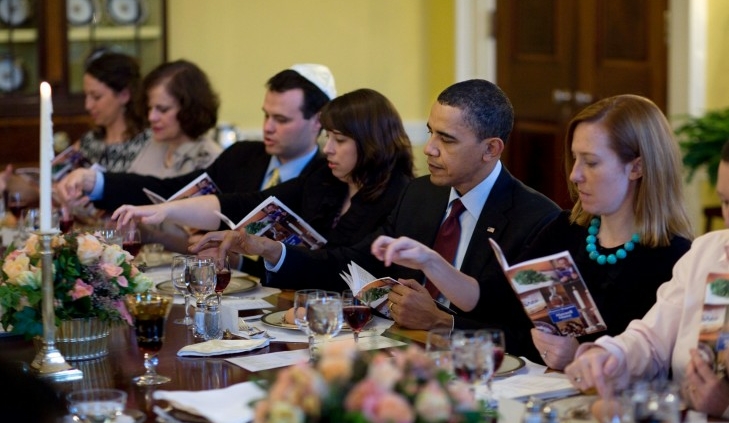
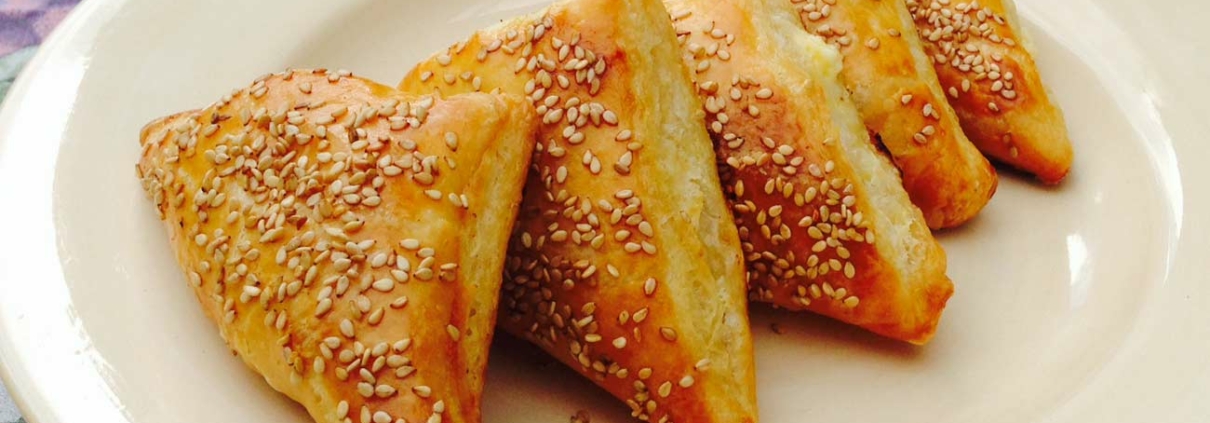

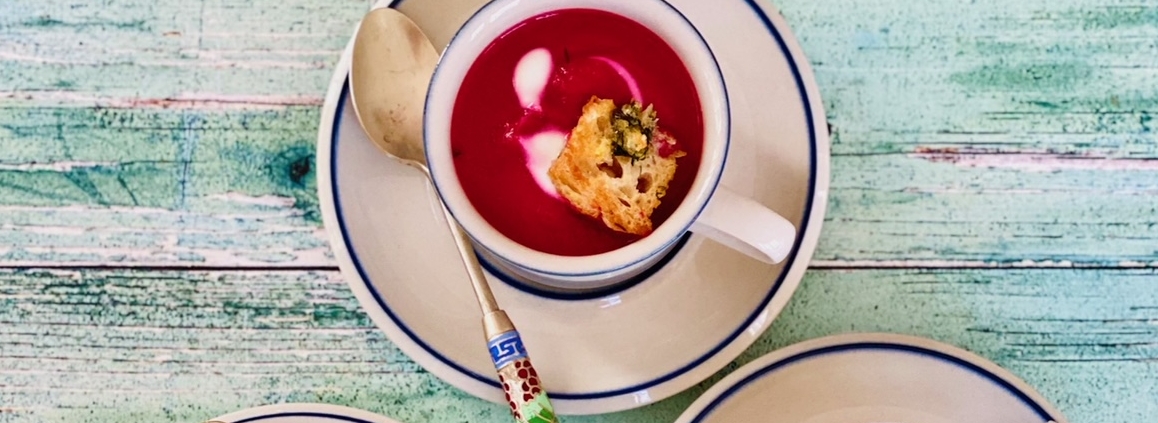


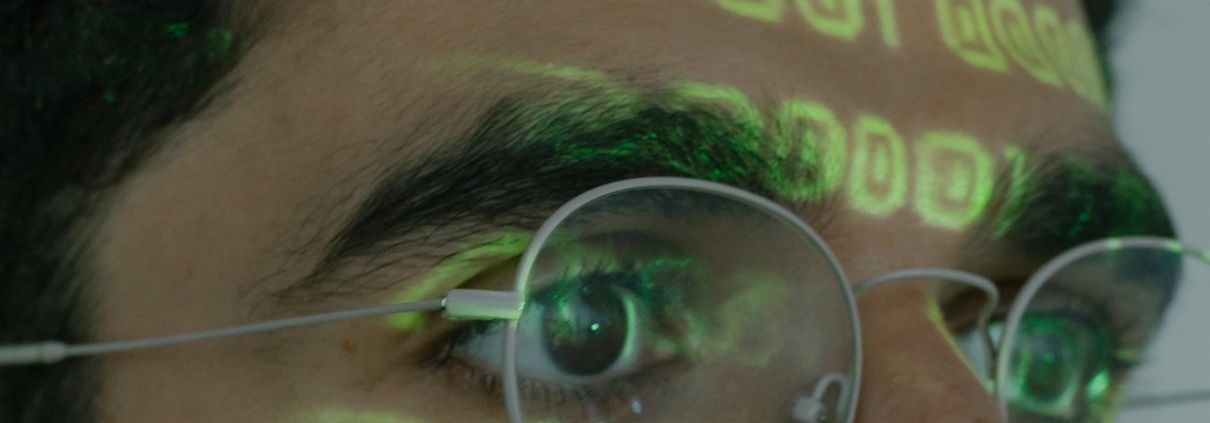
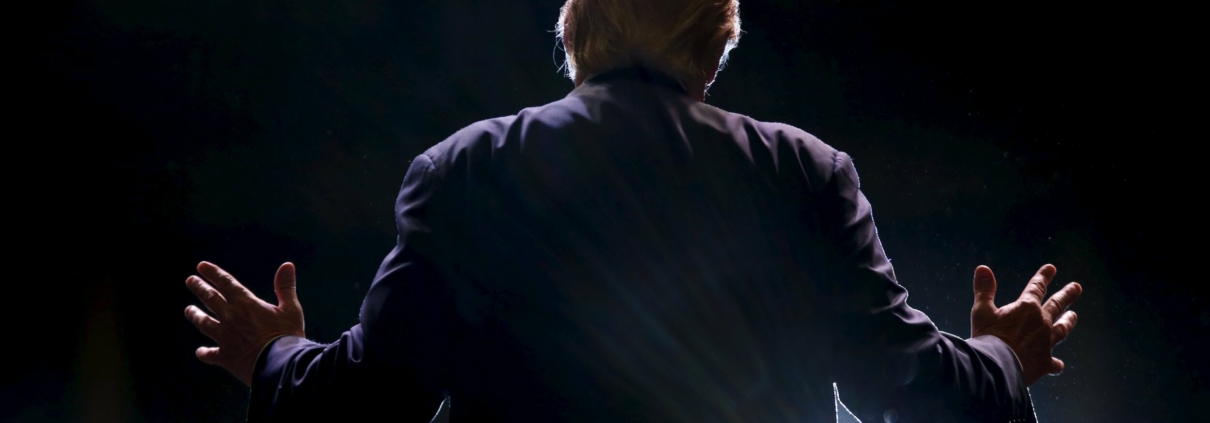
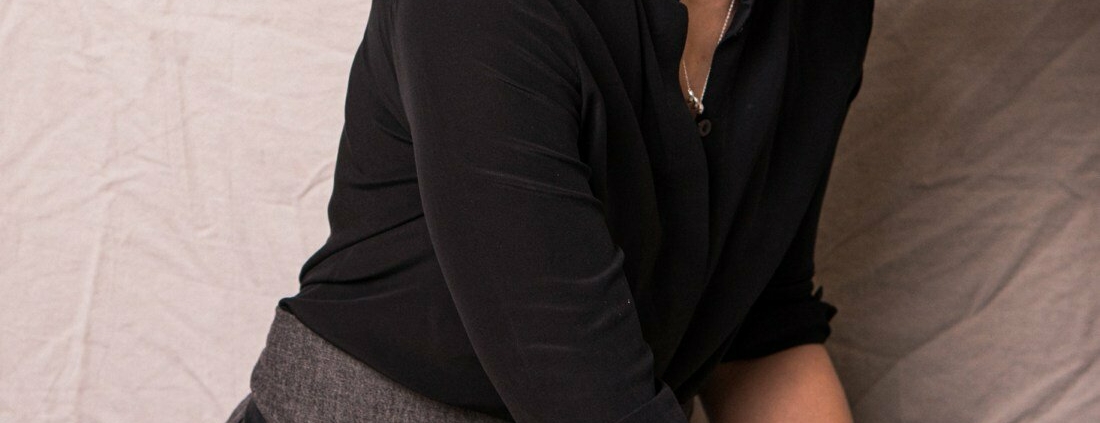


 Evan J. Krame was ordained as a rabbi by the
Evan J. Krame was ordained as a rabbi by the